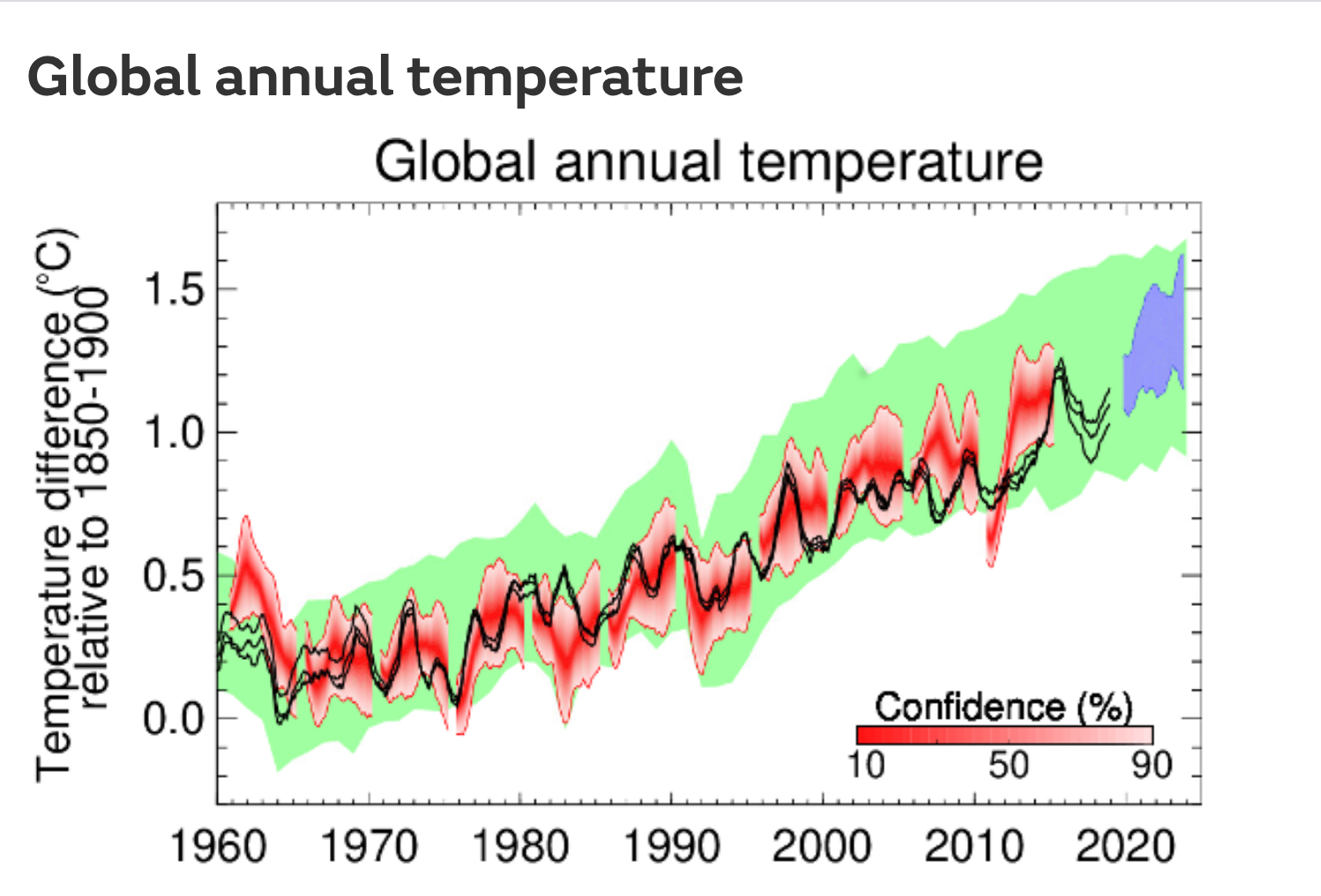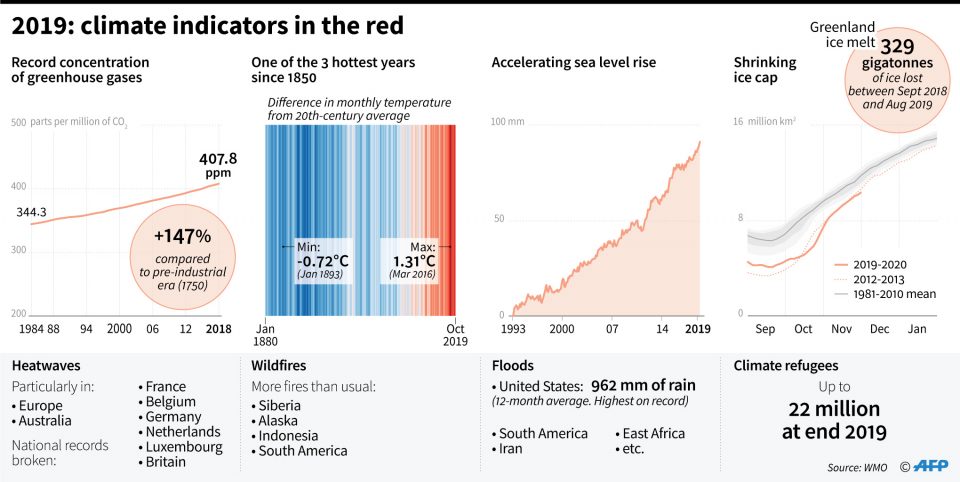
by Patrick GALEY
Agence France-Presse
PARIS, France (AFP) — The coming five years are anticipated to be warmest period on record, Britain’s Met Office said Thursday, warning of an outside chance of Earth breaching the Paris deal 1.5C temperature rise cap before 2024.
In a regular “decadal forecast” looking at predicted near-term climate trends, it said that each year between 2020-2024 is set to be 1.06-1.62C hotter than historical averages.
The Met Office forecast it “likely” that the hottest year on record, 2016, will be beaten in that time frame.
“The latest five-year forecast suggests continued warming, consistent with sustained high levels of greenhouse gases,” said Doug Smith, a Met Office fellow and decadal prediction export.
“Uncertainties exist within the forecast, but most regions are expected to be warmer and forecast patterns suggest enhanced warming over land, especially northern parts of Europe, Asia and North America –- extending the ongoing trend.”
The forecast said that barring a large volcanic eruption that could dent global heating with Sun-blocking debris, average five-year temperatures are expected to be between 1.15-1.46C above pre-industrial levels.
That compares with an average warming in 2015-2019 of 1.09C. All years in that period were among the hottest on record.
Last year alone, record highs were registered in several countries, including across northern Europe during an unprecedented heatwave that scientists said was made more likely by climate change.
The 2015 Paris deal commits nations to limit temperature rises to “well below” 2C (3.6 Farenheit) through sweeping cuts to greenhouse gas emissions.
A more ambitious cap of 1.5C would require emissions to fall 7.6 percent annually by 2030, according to the United Nations.
But emissions from burning coal, oil and gas are rising year-on-year off the back of surging energy demand and billions worth of taxpayer subsidies.
The Met Office forecast said there was an outside chance (roughly 10 percent) that a single year between 2020 and 2024 could exceed the 1.5C threshold.
“A temporary exceedance of 1.5 C doesn’t mean that the Paris Agreement will be breached,” said Stephen Belcher, the Met Office’s lead scientist.
He pointed out that the Intergovernmental Panel on Climate Change‘s climate pathways refer to a long-term average temperature rise, rather than a single year.
“However, with our forecast showing a further warming trend, the window of opportunity continues to narrow,” he said.
With just over 1C of warming so far, Earth has already been battered by a string of deadly wildfires, droughts, and storm surges exacerbated by rising seas — phenomena all made more likely by climate change.

© Agence France-Presse







